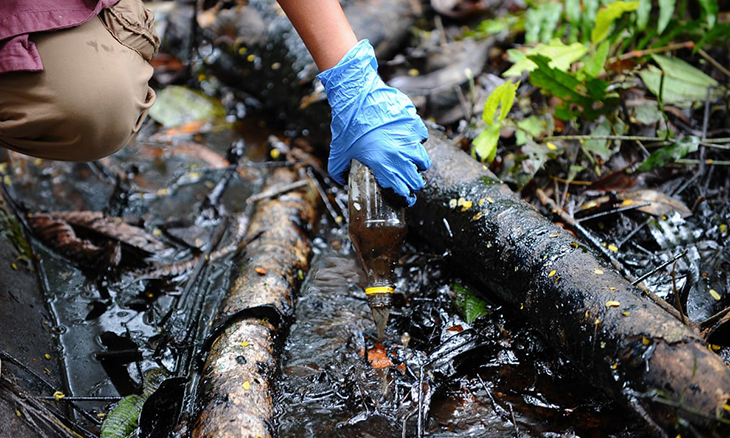
It was called the Yasuní popular consultation. This was when they asked the people of Ecuador a simple yet important question: “Do you agree with the Ecuadorian government in keeping the ITT crude, known as block 43, underground indefinitely?”
At 94% of the vote counted, the answer was 60% ‘yes’. The proposal was then approved even before 100% was tallied.
For more than a decade, the indigenous communities had fervently pressed for a significant initiative, namely the referendum. This initiative aimed to safeguard the expansive Yasuní National Park from the intrusive scourge of oil drilling. This wilderness, which encompasses the claimed ancestral lands of the contactable Huaorani tribe, as well as the voluntarily-isolated Tagaeri and Taromenane, earned its distinction when it was declared a UNESCO World Biosphere Reserve back in 1989. Encompassing a landmass more than 700 square miles larger than the renowned Yellowstone National Park, Yasuní National Park has long been celebrated as one of the most biodiverse places on our planet.
Within its bounds, one can find a breathtaking array of documented species, spanning reptiles, amphibians, fish, mammals, and birds. Astonishingly, Yasuní holds world records in species richness for amphibians, bats, trees, and reptiles, according to a notable study. The park’s remarkable biodiversity is partly attributed to its strategic location within the transitional terrain where the Andes Mountains converge with the Amazon Rainforest, nestled alongside vital tributaries of the mighty Amazon River, such as the Napo.
Yet, Yasuní has harbored a secret, one that has captivated the interests of governments and corporations for years: the potential presence of substantial oil reserves beneath its pristine surface. In 2007, then-President Rafael Correa made a groundbreaking proposition. He vowed to leave these oil riches untouched if affluent nations contributed to an Ecuadorian poverty relief fund, an endeavor amounting to roughly $3.6 billion, believed to represent roughly 50% of the oil wealth beneath the park’s terrain.
Regrettably, the anticipated support from the international community fell woefully short of expectations. Only a handful of nations, including Turkey, Chile, Colombia, Georgia, Australia, Spain, and Belgium, along with a few exceptionally wealthy individuals, stepped forward to contribute. Consequently, six years later, President Correa announced his government’s intent to proceed with oil drilling within block 43, a move that encroached upon the boundaries of the cherished National Park.
Recently, a pivotal referendum emerged on the scene, and its outcome struck a resounding blow to President Guillermo Lasso, who had also championed the cause of drilling in Yasuní. The state-owned oil company, Petroecuador, now faces the formidable task of dismantling its drilling operations within the region in the coming months, an action they have pledged to execute as soon as the referendum’s results are officially tallied and ratified. This significant turn of events marks a defining moment in the ongoing struggle to preserve the ecological treasure that is Yasuní National Park.
What are your thoughts? Please comment below and share this news!
True Activist / Report a typo


